Inside New Jersey’s troubled immigration detention center: ‘It’s designed to break people’
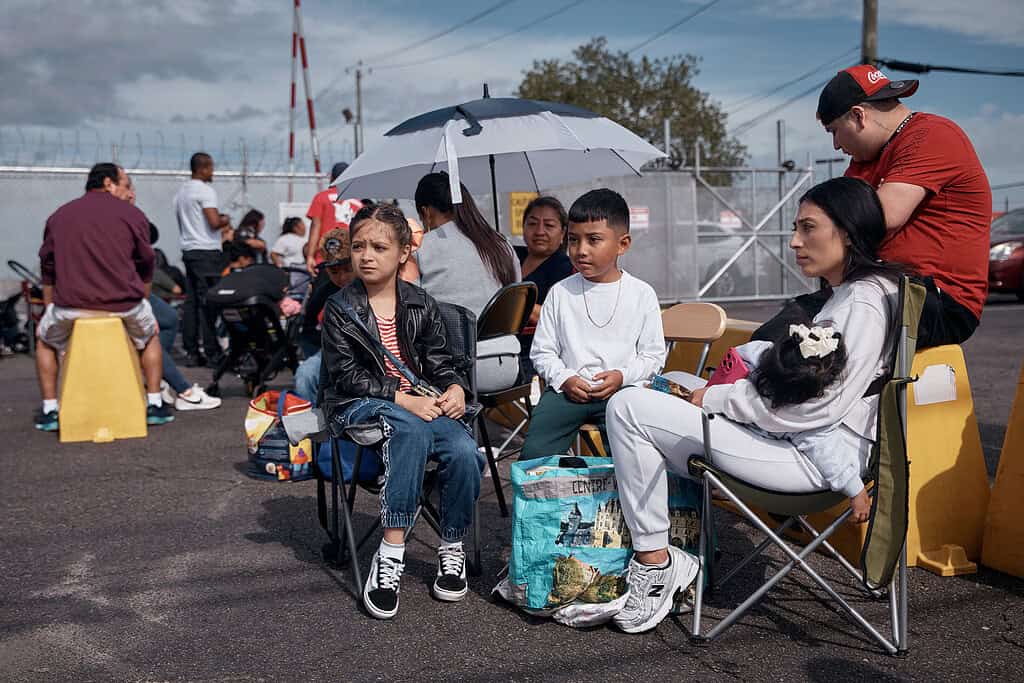
Immigration detainees inside a controversial Newark detention center are enduring squalid conditions and mistreatment, families and advocates said this week — more than three months after a riot over poor living conditions shook the complex.
Advocates for immigrants told The Jersey Vindicator that detainees at Delaney Hall, a privately run 1,000-bed facility on Doremus Avenue, have endured abuse and neglect, including frozen and inedible food, foul and undrinkable water, frigid cells, inconsistent access to prescription medications, and guards who goad detainees into fights and retaliate against those who complain.
“Every aspect of human life is dire inside this facility,” said Adam Marshall, a volunteer with New Jersey Peace Action and the People’s Organization for Progress. “It’s designed to break people.”
The stories arrive in dribs and drabs, leaking out between the links of the towering barbed wire fences and brought into the public eye by the grief-stricken families of the men and women swept up in President Donald Trump’s mass immigration raids.
But those anecdotes aside, much of what goes on inside one of the largest detention centers on the East Coast has remained hidden.
Even Gov. Phil Murphy, the Garden State’s Democratic governor, is apparently in the dark about what’s happening within this bastille on Newark Bay.
“I honestly will tell you we don’t know nearly as much as we should,” Murphy said during a recent radio chat with WNYC’s Nancy Solomon. “But it’s a concern. The lack of transparency…is always an issue.”
“And I sadly would say — a year from now, if things keep going the way they’re going and the next governor is sitting here, we’re going to be talking about a lot more places than Delaney Hall.”
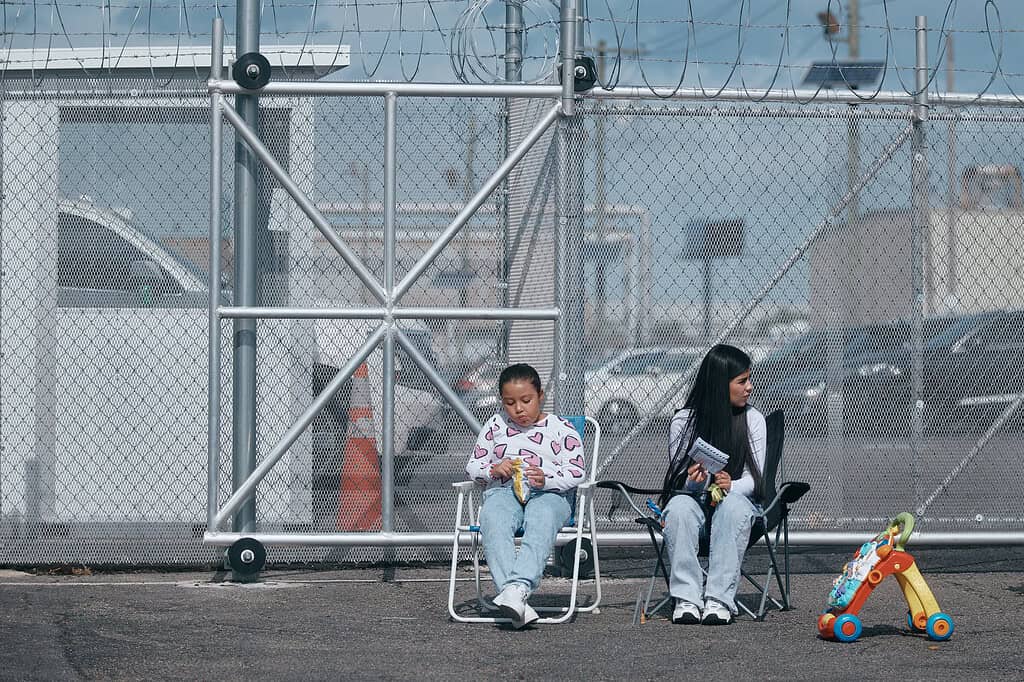
The suffering described by the frightened family members of the incarcerated has not been without consequence.
In June, riots erupted at the detention center due to a lack of food and other poor living conditions, leading to a confrontation between detainees and guards. Detainees had not been fed for more than 20 hours, and when the inadequate lunch arrived, tensions boiled over, resulting in a fight and property destruction.
The uprising, which also led to four male detainees breaking out of the facility, later contributed to U.S. Immigration and Customs Enforcement’s decision to transfer scores of detainees to red states where judges would be more favorable to the Trump administration, immigrant advocates said at the time.
Now, detainees are shuffled around at will, and have no idea if they will be brought to court, held in their cells, or suddenly transferred to some far-flung camp in Texas, Louisiana, or New Mexico.
“It’s the uncertainty — it’s the fact that there’s no schedule, no actual sentence, no determined timeline,” Marshall, the social justice activist, said. “There are many things that are physically torturous in that facility, but I think the absolute uncertainty of it and the dehumanization that comes from that are probably at the top of the list.”
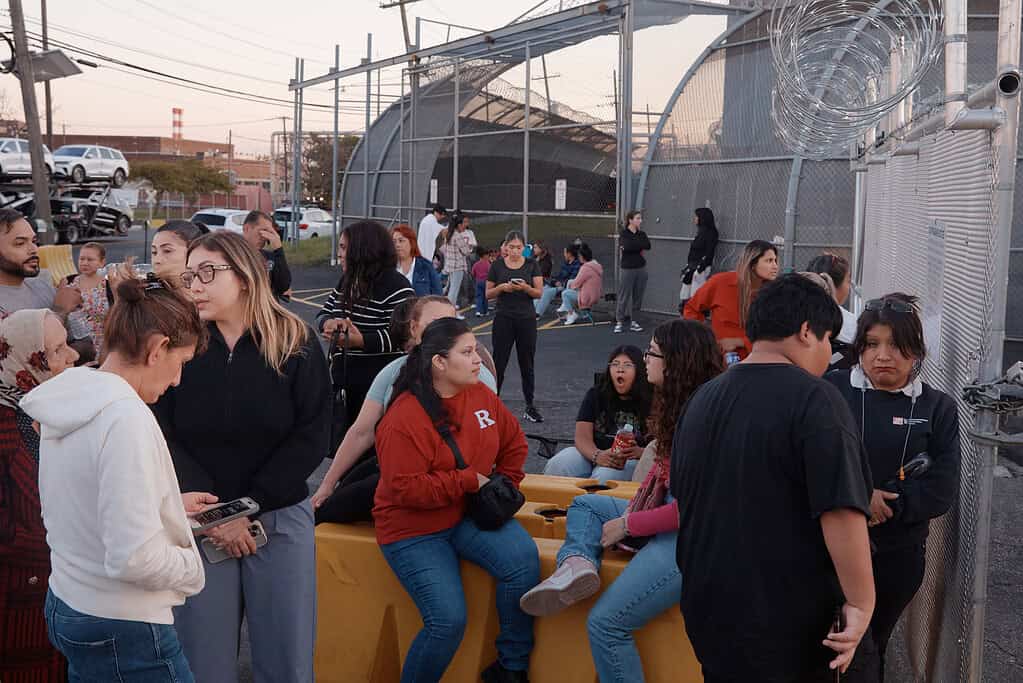
“Every illegal alien in ICE custody is there because they knowingly violated U.S. immigration law, and many have additional criminal history,” an ICE spokesperson said in an email. “It is inappropriate to entertain fabricated claims about conditions at Delaney Hall.”
Both ICE and the facility’s private operator, the GEO Group, have vehemently denied the charges in statements to The Jersey Vindicator.
“ICE will not be intimidated by false narrative,” the spokesperson said. “The facts are clear: Facilities are safe, secure, medically equipped, and heavily regulated. Any claims otherwise are nothing more than deliberate misinformation by those who would rather protect criminals than uphold U.S. law.”
GEO Group issued a similar statement in which the firm said it “disagrees with these baseless allegations, which are part of a long-standing, politically motivated and radical campaign to abolish ICE and end federal immigration detention by attacking the federal government’s immigration facility contractors.”
“We are proud of the role our company has played for 40 years to support the law enforcement mission of U.S. Immigration and Customs Enforcement,” a spokesperson said.
‘Inhumane and unjust’
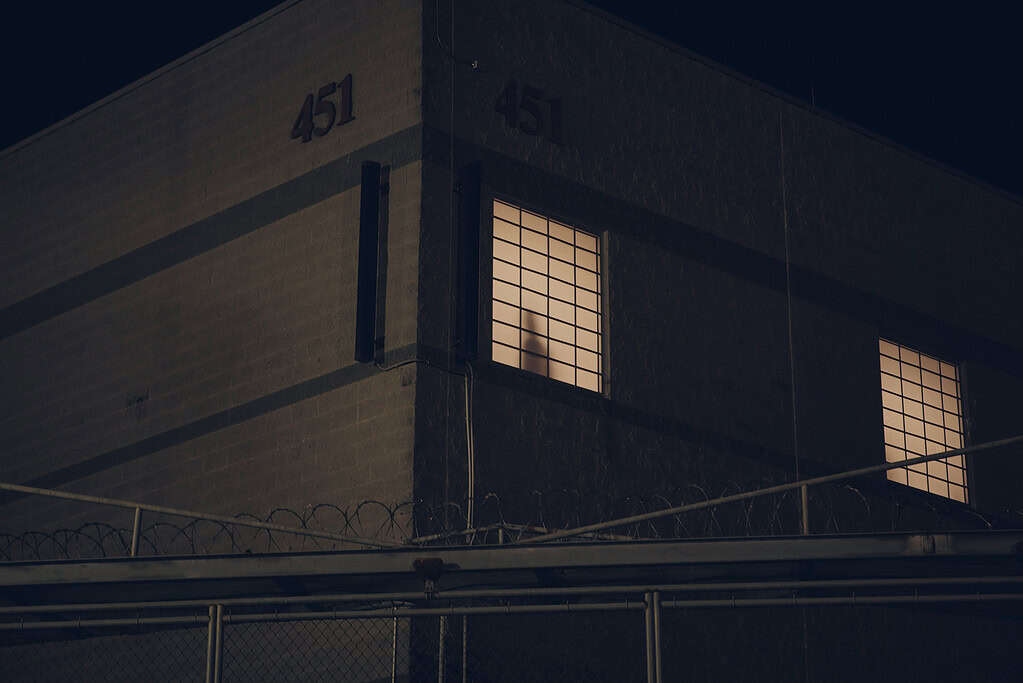
A hulking fortress just across the parking lot from the Essex County Correctional Facility, Delaney Hall opened May 1 after ICE signed a 15-year contract with the Geo Group worth about $60 million the first year. GEO estimates the 15-year value of the contract with cost of living adjustments to be about $1 billion.
.
On visiting days, bands of people — mostly women and children — line up along a tall chain-link fence in a tiny parking lot for hours on end in the hopes they’ll get to see their loved ones.
There is no shade, no bathrooms, no water, and no food. And frequent miscommunications with Delaney’s staff mean there’s no guarantee they’ll even get in.
A gag-inducing stench wafts across the lot when the winds change, flooding the area with the odor of rotting fish, old garbage, and diesel fumes, courtesy of Newark’s “Chemical Corridor,” a mile-long stretch of Doremus Avenue that’s home to a natural gas plant, a sewage treatment facility, and an animal fat rendering plant, among other sites.
On Thursday evening, about two dozen people sat around in tailgate chairs provided by a half-dozen activists, who brought with them piles of food, assorted clothing, and handheld signs calling for the “inhumane, unjust” facility to close down.

Every so often, one of the polo-shirt-wearing GEO guards slid open the gate, and families flocked to the fences to see who would be allowed in, as white ICE vans with tinted windows careened in and out.
But as bad as it is outside with the unbreathable air, exposed conditions, and the unbearable racket of passing trains and traffic, it’s still worse inside, according to Kathy O’Leary of Pax Christi, an international Catholic peace organization.
“Everyone is depressed — everyone,” O’Leary said. “It’s awful. The worst part of visitation is when everybody has to leave, because everyone is crying.”
‘This is the way you’re treated in a prison’
O’Leary has visited Delaney Hall more times than she can count since it opened this spring.
“It’s ironic that ICE and everybody who supports immigration detention swears up and down that these aren’t jails, they’re not prisons, it’s not a carceral setting,” O’Leary said. “But it is a carceral setting. They use all the same rules and services that prisons do. That’s how you’re treated in a prison.”
The water borders on undrinkable, she said, which has forced officials to bring in bottled drinking water.
But it doesn’t always work out.
“Recently they were without that water for days, and they were told to just drink the water from the tap — but at their own risk,” O’Leary said. “It’s very foul tasting and has a foul odor. No one knows why, because it’s city water. But the water is disgusting.”
The detainees aren’t getting nearly enough food — and what they do get is so bad that many won’t eat it, leading some to drop dozens of pounds at a time, advocates said.
“They give them tuna sandwiches or hamburgers that are still frozen, with broccoli that is obviously very old,” Monica Aguilar, of the Jersey City-based community organization Action 21, said outside Delaney on Thursday night.
A woman named Rosa said the guards once gave her nephew’s wife beans rife with worms, while someone else said they often serve frozen ham sandwiches.
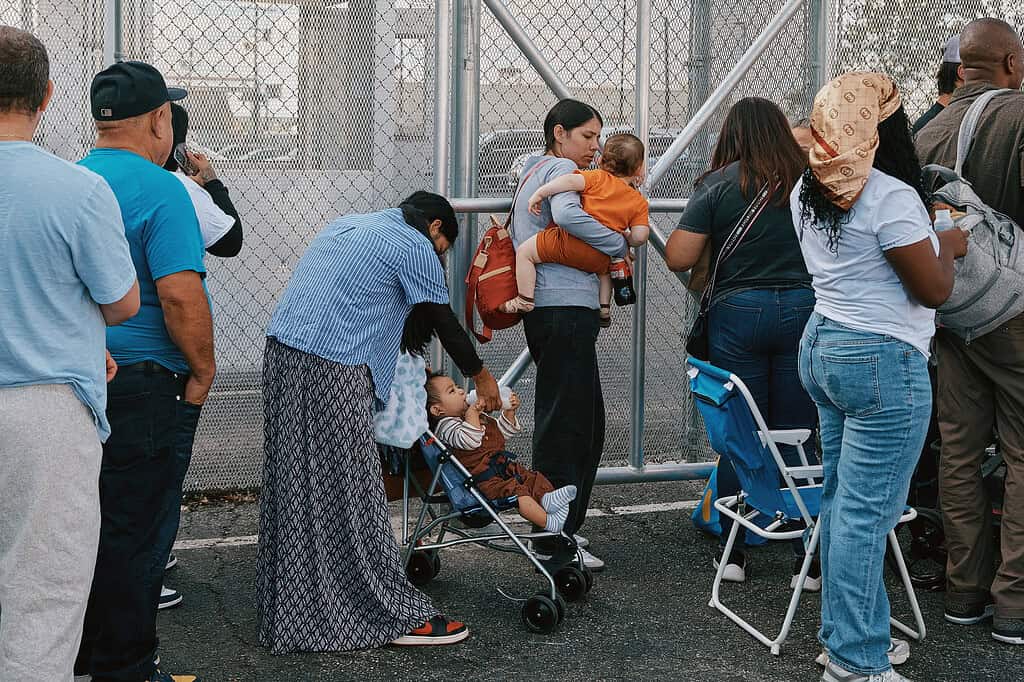
Another woman said guards have tried to coerce her detained husband into signing deportation papers.
“They ask how people want their deportation handled, or tell them to sign so the process is easier,” she said. “They pressure them through poor treatment so they’ll give up.”
The feeding times are also wildly inconsistent. Sometimes breakfast is at 4 a.m., other times 7 a.m. And if the detainees don’t wolf down their meal fast enough, the guards seize the trays and throw the food out, O’Leary said.
There are only a few microwaves for hundreds of people, which leads to constant conflict.
“There’s a lot of arguments between people who are in detention,” O’Leary said. “The guards are verbally abusive and racist, and we’re hearing they actually try to goad people into fights.”
Detainees aren’t receiving their prescriptions, and even when they do, it’s not always the correct medication.
“We had someone who was up sweating all night long because they gave him the wrong medication,” O’Leary said. “They’re also denied medication they’re supposed to get and denied treatments they’re supposed to get.”
Outbreaks of COVID-19 have become common, but guards will only hand out Tylenol despite the seriousness of the illness, she said.
And even though COVID often brings with it chills and other flu-like symptoms, the detainees are placed in frigid rooms with a threadbare mattress and no pillow or blankets.
“They’re not getting any other kind of treatment,” she said.
Aguilar added that people with potentially life-threatening health issues, such as heart disease or diabetes, can go for long periods without assistance.
“It takes a while for [the guards] to even answer requests for medical help,” she said.
Detainees must buy everything inside, from toothpaste to towels to deodorant, and they can barely sleep because the guards wake them up at all hours for prisoner counts.
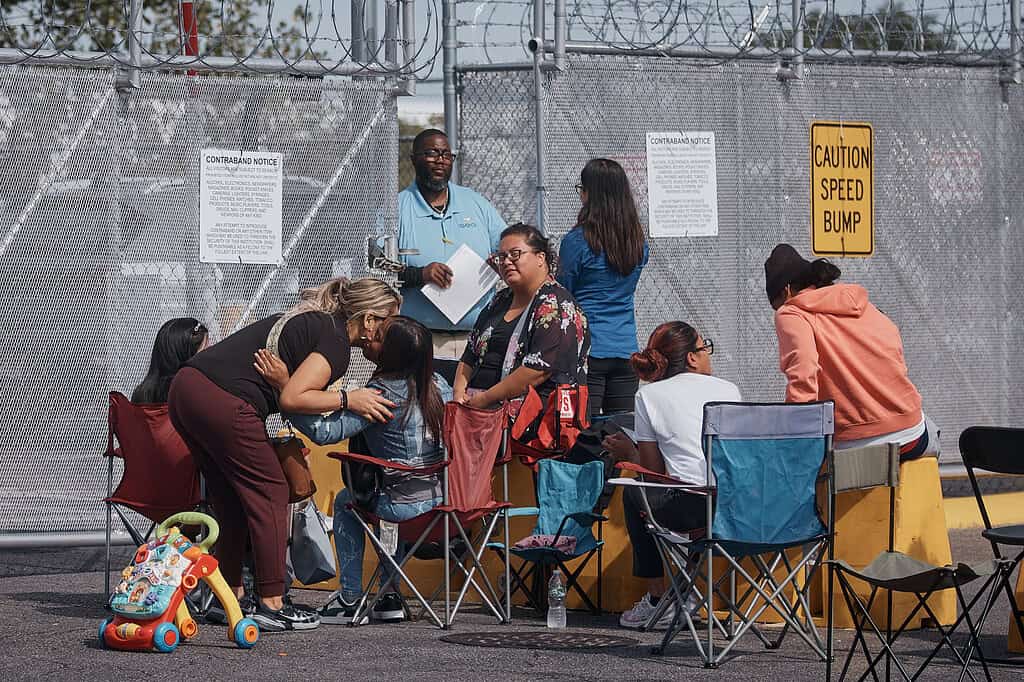
Allegations of retaliation against those who complain to their families about the conditions have also slipped out.
Sometimes the guards strip detainees of their phone privileges, make them clean toilets, or bar them from scheduled court hearings as punishment.
“People are afraid to say anything,” Aguilar said. “When I talk to the families outside, I tell them to ask, ‘How is it? How are you really doing?’ Because the people inside have said, ‘I don’t want to tell you, because I don’t want you to suffer.’”
The guards who handle the line of family members outside on visiting days show equal callousness, they said — specifically a portly, vindictive man they’ve dubbed “Mr. Sunshine.”
Several people told The Jersey Vindicator that Mr. Sunshine sets the rules for who gets in and when. Family members of detainees who are seen talking to advocates outside the facility are sometimes banned from entering the facility for the day.
The guard also allegedly plays favorites, to the frustration of those who watch late visitors walk in ahead of them.
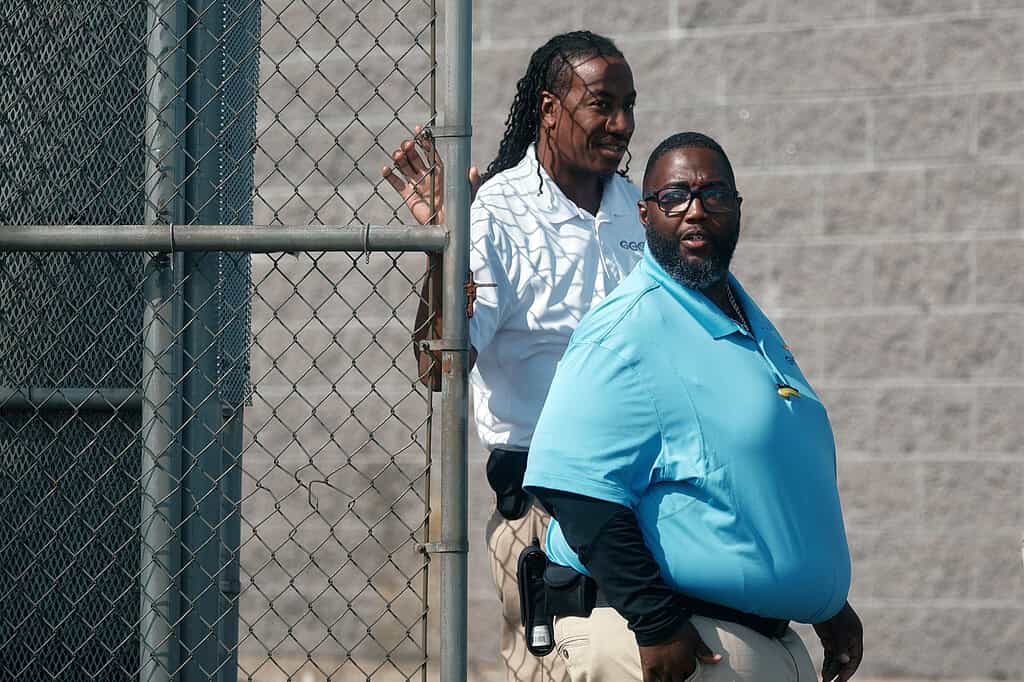
“He’s infamous,” O’Leary said. “And he gets angry. Somebody drew a hopscotch board on the driveway, because there are kids sitting there for hours on end. And he got angry that there was chalk on the driveway of ‘his prison.’”
Both ICE and GEO Group denied these allegations, with GEO Group claiming detainees have “around-the-clock access to medical care, in-person and virtual legal and family visitation, general and legal library access, translation services, dietitian-approved meals, religious and specialty diets, recreational amenities, and opportunities to practice their religious beliefs.”
ICE similarly defended itself, saying Delaney Hall is run in strict compliance with federal regulations.
“These standards mandate comprehensive safeguards for detainee welfare, and ICE enforces them without compromise,” a spokesperson said, adding that detainees are treated to luxuries like “potable water, clean and sanitized living areas, and vermin-free housing.”
Advocates for immigrants dismissed claims from officials that detainees and their families are treated with dignity, and said the combined stressors have pushed many to the very end of their rope.
“Spirits are being broken,” Aguilar said.
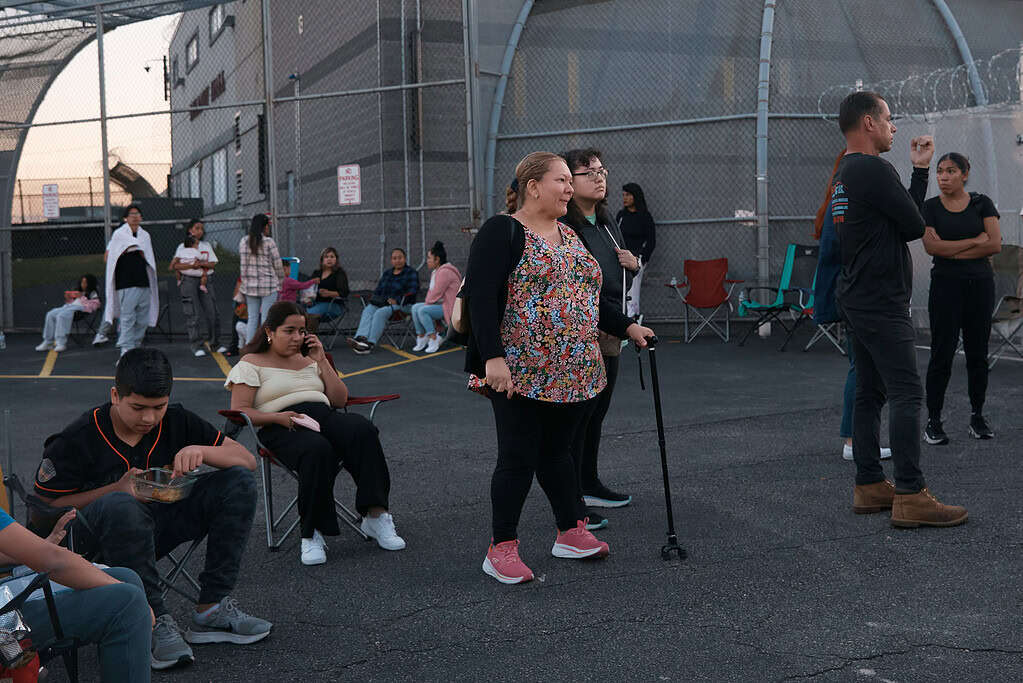
If this reporting helped you understand something important about New Jersey, consider supporting it.
The Jersey Vindicator is an independent, nonprofit newsroom focused on accountability and transparency. Our reporting is funded by readers — not corporations, political insiders, or big advertisers.
Reader support makes this work possible — and helps ensure it continues.
Steve Janoski is a multi-award-winning journalist whose work has appeared in the New York Post, USA Today, the Associated Press, The Bergen Record and the Asbury Park Press. His reporting has exposed corruption, government malfeasance and police misconduct


